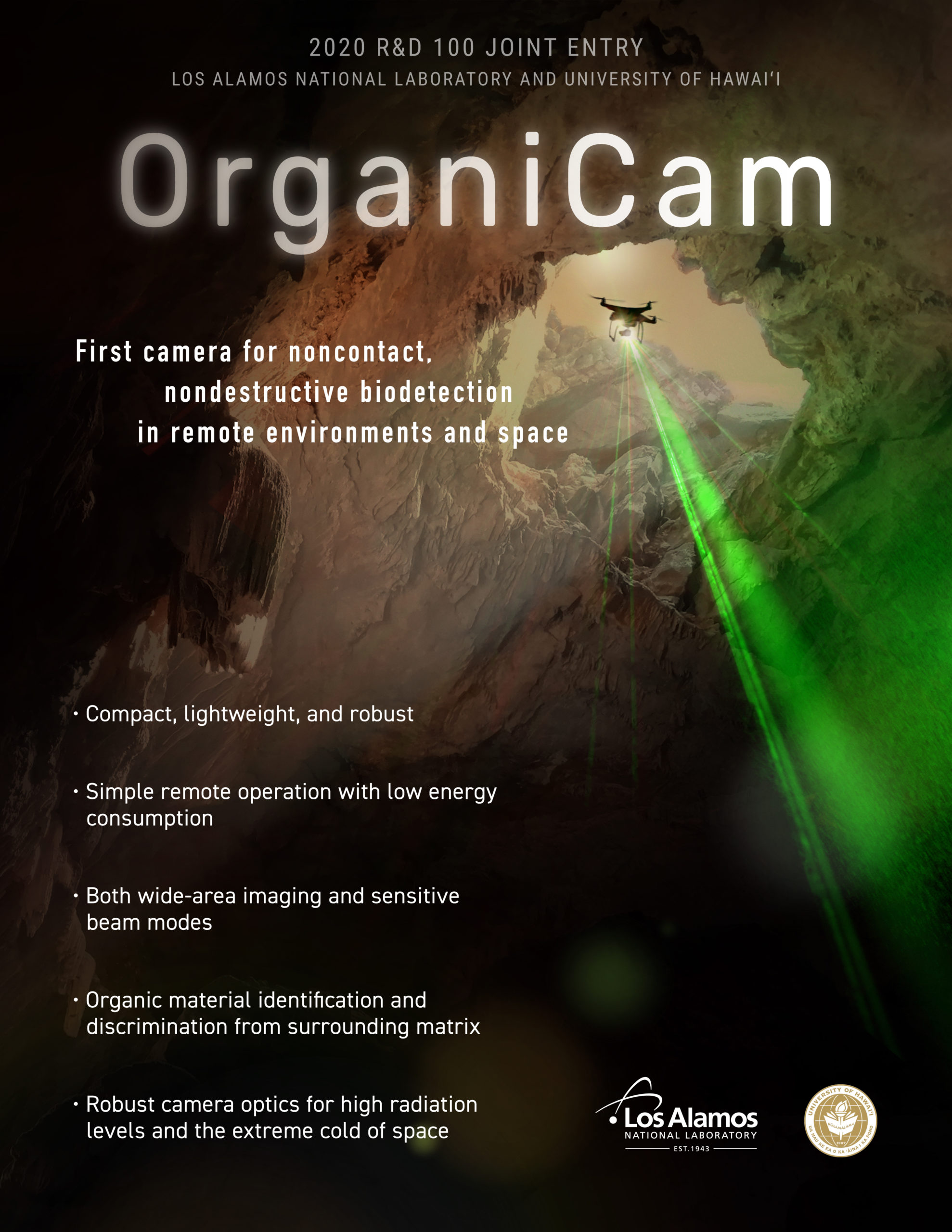OrganiCam: First camera for noncontact, nondestructive biodetection in remote environments and space
Category: Mechanical/Materials
Developers: Los Alamos National Laboratory
Co-Developers: University of Hawai’i
United States
Product Description:OrganiCam, from Los Alamos National Laboratory, opens exciting frontiers in space exploration and the search for signs of life beyond the Earth. OrganiCam will be a reconnaissance instrument for organics on other bodies of the solar system. These include ocean worlds, caves on Mars and comet surfaces. It is a lightweight, portable payload that is radiation-hardened and robust for space applications. OrganiCam can be used to determine if instruments being sent into space are sterile – not contaminated with Earth’s biological materials on future NASA missions, and to analyze examples returned to Earth. Beyond its use in space exploration, OrganiCam can detect organics at the ppb level in “clean” environments. OrganiCam takes advantage of the short lifetime of biofluorescent materials to obtain real-time fluorescence images that show the locations of biological materials among luminescent minerals in a geological context. The instrument’s advantages of robust operation in extreme environments, portability, simple operation and low power requirement build on the Laboratory’s expertise developed from over 50 years in designing robotic instruments for space applications.
Developers: Los Alamos National Laboratory
Co-Developers: University of Hawai’i
United States
Product Description:OrganiCam, from Los Alamos National Laboratory, opens exciting frontiers in space exploration and the search for signs of life beyond the Earth. OrganiCam will be a reconnaissance instrument for organics on other bodies of the solar system. These include ocean worlds, caves on Mars and comet surfaces. It is a lightweight, portable payload that is radiation-hardened and robust for space applications. OrganiCam can be used to determine if instruments being sent into space are sterile – not contaminated with Earth’s biological materials on future NASA missions, and to analyze examples returned to Earth. Beyond its use in space exploration, OrganiCam can detect organics at the ppb level in “clean” environments. OrganiCam takes advantage of the short lifetime of biofluorescent materials to obtain real-time fluorescence images that show the locations of biological materials among luminescent minerals in a geological context. The instrument’s advantages of robust operation in extreme environments, portability, simple operation and low power requirement build on the Laboratory’s expertise developed from over 50 years in designing robotic instruments for space applications.

Cover_OrganiCam.jpg
